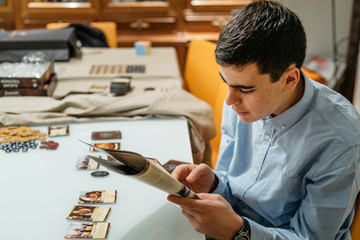Looking for a fun way to boost your teamwork and communication skills? Board games have got you covered! Whether you’re working together to solve a puzzle in Pandemic or competing against each other in Monopoly, these games teach us the value of collaboration, active listening, and friendly competition. Board games create an environment where everyone’s input matters, encouraging teamwork and strengthening relationships. So gather your family or friends, and watch your social skills soar while enjoying some good old-fashioned fun!
One of the key advantages of playing board games as a group is the opportunity to enhance teamwork and collaboration. Cooperative games like Pandemic or Forbidden Island require players to work together, share information, and make collective decisions to succeed. These games foster an environment where individuals must listen to each other, plan together, and rely on their teammates’ strengths. This not only helps improve team dynamics but also builds strong communication skills that translate well into real-life teamwork situations, whether at work or in personal relationships.


Board games provide a platform for open communication and discussion, making them an ideal activity for improving verbal interaction. Players often need to negotiate, explain their strategies, or simply engage in friendly banter, which encourages clear and effective communication. This is especially true for games like Codenames or Pictionary, where players must communicate ideas and concepts creatively. Through these interactions, players enhance their ability to express thoughts, listen actively, and engage in meaningful conversations, skills that are vital for both personal and professional relationships.
Many board games challenge players to think critically and solve complex problems, which helps to develop important cognitive skills. Games like Catan or Chess require players to plan strategically, anticipate others’ moves, and make decisions based on incomplete information. The problem-solving aspect of these games can be particularly beneficial for individuals looking to improve their decision-making abilities. Over time, the ability to think critically in high-pressure or unpredictable situations becomes more intuitive, and players can apply these skills in everyday life.

The Game Realm is waiting for you. Whether you’re looking to join a game night, host an event, or simply explore new games, we are here to provide an unforgettable experience. Let’s make your next gaming adventure epic – we’re just a click away!
114 Gossamer Drive, Pakuranga Heights, Auckland 2010, New Zealand +6495769763 [email protected]